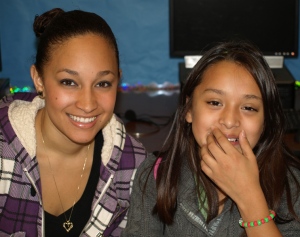Sixth grade was my lost year, academically speaking. My K-5th grade school had been in the small cinder block building at the Lutheran church that my grandfather built. Three grades, composed of about seven children each shared a room and a teacher. In sixth grade though, I was sent to public school. At Mary Devine Elementary, three classrooms were required to accommodate the sixth grade. Students were segregated into performance-leveled classes: the smart kids, the average students and the under-performers. Perhaps fearing the change in venue would be too much to cope with, and despite my over-achieving history, my parents decided to place me in the least academically challenging class.
My classmates, who’d been together since first grade, had perfected a culture of academic indifference. They neither reveled in success, nor regretted failure. As an outsider trying to fit in, I spent the year pretending not to know. I secretly completed assignments, voraciously read everything that was put before me and quietly collected straight A’s. And I retrained myself to not be the first hand in the air. My craving for peer approval far out-weighed my desire to impress Mr. Allison.
Much of the current literature on school reform describes the positive impact that a high expectations climate can have on academic achievement.

Learn how you can inspire an excitement for learning. Visit https://austinpartners.org/classroom_coaching.
Campuses implement everything from dress codes to motivational posters to inspire an excitement for learning. But on campuses where significant numbers of students are falling behind, where classes are crowded and teachers stretched thin, the prescribed culture of well-intentioned administrators and teachers may be no match for the deeply ingrained traditions of adolescents who are more concerned with fitting in than getting ahead.
Still it’s not hopeless. Studies show that teachers still have the strongest impact on student performance. Further, the presence of a single caring adult – teacher, coach, volunteer — in a child’s life, someone who takes an interest in their social, emotional and academic well-being can prevent that child from checking out and eventually dropping out. That’s what Mr. Allison did for me that year. But more on that next week.
Pat Abrams, Executive Director
Join us. Volunteer now for spring.